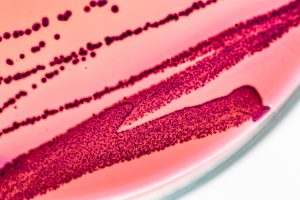Sandpit on Raman Spectroscopy as a Tool for Clinical Applications - Manchester, December 11th 2018


EPSRC FAST HEALTHCARE NETWORKSPLUS
Sandpit on the Development of Raman Spectroscopy as a Tool for Detection of Antimicrobial Resistance and other Clinical Applications
11th December 2018 in Manchester
What was this Workshop?
Raman spectroscopy is an optical technique that measures the chemical composition and molecular structure of a sample. Utilisation of the ‘molecular fingerprint’ of Raman spectra has proven an effective analytical approach in geology, semiconductor, materials and polymer science fields. The application of Raman spectroscopy and microscopy within biology is rapidly increasing and it has proven to be a valuable analytical tool for various applications. In collaboration with Professor Frank Martin’s group at UCLAN, Professor Anthony Rowbottom has demonstrated the potential clinical applications of Raman to various cancers, AMR, neurodegenerative disease, renal disorders and more recently the diagnosis of primary immunodeficiency. As the use of Raman in the laboratory and clinical setting increases there will be a need to better characterise and standardise protocols to facilitate use in clinical settings. Whilst the technique is not quantitative there will a requirement to create a reference library and understand the elements that impact on result variations.
The purpose of this Sandpit was threefold:
- To bring together a new group of clinicians, engineers and physical scientists who would be interested in being part of a new National Expert Group on the clinical application of Raman spectroscopy.
- To identify the clinical opportunities for Raman in the short, medium and long-term which the Group could look to address.
- To work up an engineering-focussed mini project to pump prime the Group’s activity in the area of detection of antimicrobial resistant pathogens in a clinical setting with £60,000 (fEC) seed funding from the EPSRC FAST Healthcare NetworksPlus[1].
What was the structure of the Sandpit?
The Sandpit was divided into three Sessions. In the first session, the background to the application of Raman Spectroscopy was presented and participants performed a ‘SWOT’ analysis. In the second session, a few clinical scenarios to which Raman Spectroscopy may be applied were presented and participants put together a simple short, medium and long-term roadmap for development of the technique. In the third session, groups worked up a pump priming project proposal to address the application of Raman Spectroscopy for the detection of antimicrobial resistant pathogens.
Who spoke at this Workshop?
Confirmed speakers at the Workshop included:
- Professor Anthony Rowbottom Associate Clinical Director for Pathology and Immunology Director, Lancashire Teaching Hospitals NHS Foundation Trust
- Professor Frank Martin Chair in Biosciences, University of Central Lancashire
- Professor Rasmita Raval, University of Liverpool and National Biofilms Innovation Centre
Who attended this Workshop?
We welcomed participants from across the clinical, the academic engineering and physical sciences and industrial communities to this Workshop. We anticipated demand for places at the Workshop exceeding the number of places which were available. Academic and other non-commercial participants from within the UK will be able to have reasonable travel expenses reimbursed (subject to the University of Cambridge’s normal conditions).
What are the key dates?
Applications to attend the Workshop had to be received via the website on or before 28th November. Applicants were informed whether they have been allocated a place at the Workshop by 4th December. The Workshop itself was on 11th December 2018 and started no earlier than 9:30 am and finished before 4:00 pm.
The Roadmap from the Workshop and the funded pump priming project will be published in Spring 2019.
Who organised the Workshop?
The Workshop was put together by Professor Anthony Rowbottom with Professor Andrew Flewitt (Engineering Department, Cambridge University) for the EPSRC Fast Assessment and Treatment NetworksPlus. The Purpose of the Network is to promote joined-up treatment in public health by taking a holistic view of clinical assessment and treatment pathways and developing solutions that deliver real impact on clinical treatment processes and patient outcomes. We will achieve this by initiating new research collaborations in the engineering and physical sciences community in the UK.
[1] The project must fall within the EPSRC’s funding remit and only institutions that are eligible for EPSRC funding may receive funds from the project.
